Reviews: Paul Simon; Santana; Case/Lang/Veirs; Alex & Nilusha; 9Bach; Mudcrutch; Natalie Gillespie
Paul Simon’s new album may well find an audience beyond the baby boomers who once thrilled to The Sound of Silence.
POP
Stranger to Stranger
Paul Simon
Concord
5 stars
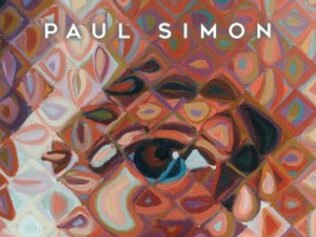
Performing last week in Berkeley, California, Paul Simon paused before the last verse of The Boxer to make an announcement. “I’m sorry to tell you this,” he informed the audience, “but Muhammad Ali just passed away.” Ali’s career as a pugilist lasted considerably longer than that of Simon and Garfunkel’s as a folk-pop duo, but their initial phase of popularity more or less coincided.
It’s unlikely The Boxer, released as a single in 1969, was originally about Ali, but in retrospect its ambiguity could be stretched to encapsulate the fate of the world heavyweight champion unfairly stripped of the title in his prime. A decade and a half later, the solo masterpiece Graceland made no overt political statements, yet it subtly undermined apartheid in South Africa.
Stranger to Stranger is Simon’s most rewarding album since Graceland and Rhythm of the Saints, and it is probably no coincidence that production credits are shared by Roy Halee for the first time since 1990. “To get people to listen with open ears, you have to really make something that is interesting because people are prepared for it not to be interesting,” Simon recently told Rolling Stone. He’s right, of course: his two most recent efforts, 2011’s Surprise and So Beautiful or So What from five years ago, both fell in the worthy-but-unexciting category. On the other hand, the very first note, played on a gopichand, on this album’s opening track, Werewolf, indicates we’re in the presence of something unusual. “The fact is most obits are mixed reviews / Life is a lottery, a lot of people lose,” Simon intones in vocals that belie his 75 years. “And the winners, the grinners with money-coloured eyes / Eat all the nuggets, then they order extra fries.”
The theme continues on Wristband, the first single off this album, in which the concept of a performer locked out of his own concert serves as a metaphor for an unequal society’s woes. The beats on these two tracks as well as Street Angel come courtesy of Italian electronic dance music specialist Clap! Clap!, and innovative textures are a hallmark of Stranger to Stranger (albeit not so much on the wonderfully relaxed, nostalgic title track: “I’m just jittery,” Simon sings, “it’s just the way I’m dealing with my joy”), with Peruvian drums and African woodwind instruments thrown into the mix alongside synthesisers, horns and samples of gospel music. The two tender instrumentals on this long-player, The Clock and In the Garden of Edie, are however guitar-based. Simon signs off with the intriguing Insomniac’s Lullaby, which concludes with the claim, “We eventually all fall asleep.”
Nobody’s likely to doze off while listening to this outstanding album, though.
It’s Simon’s Rumble in the Jungle, if you like: a somewhat unexpected vindication of his skills with words and melodies that may well find an audience far beyond the baby boomers who once thrilled to The Sounds of Silence.
Mahir Ali
*

FOLK
Anian
9Bach
Real World/Planet
3.5 stars
Striking singer, songwriter and pianist Lisa Jen may retain the spotlight on 9Bach’s third long-player, alongside the lyricism of the Welsh language, but Anian constitutes a more ensemble-oriented work than her band’s intriguing 2014 breakthrough, Tincian. That may well be because the follow-up album, recorded live in the studio with minimal overdubbing, allowed the group’s three resident female singers to interrelate on a more instinctive and emotional level. The prime exhibit is an exquisite alternating minor and major key a cappella study based on a poem in which overlapping female harmonies simulate a harp melody. Vocal cohesion is similarly salient in a haunting rendition of a 19th-century anti-slavery song and in a tender mash-up of Welsh folk ballads relating to homesickness and heartache. On other tracks, the backing is comparatively elaborate, with harp, dulcimer, electric guitar, bass drum and double bass weaving complex patterns. Unnecessarily edgy trip-hop electronica and beats mar the opening tracks. The album’s downbeat dystopian ambience is advanced in a central work based on an allegedly true story of a Russian boy who was adopted by a pack of wild dogs and on several pieces predicated on guilt, respectively inspired by Greek underworld rebetika songs and apocalyptic events. Those with a limited grasp of Cymraeg (Welsh) will doubtless look forward to hearing a celebrity cast, which includes Maxine Peake, Rhys Ifans and Peter Gabriel, reading interpretations of the song themes in English on an accompanying disc.
Tony Hillier
*
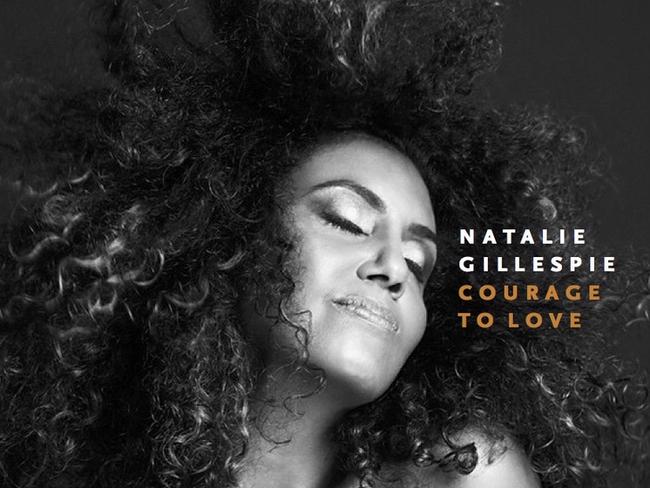
ROOTS
Courage to Love
Natalie Gillespie
Independent
3.5 stars
A panoply of premier Australian roots and rock talent — principally West Australians — packs down behind Natalie Gillespie in the Perth singer’s belated second album, which is primarily why the follow-up to her 2003 debut solo release punches above its weight. While the soulful pipes and lyrics of this former Yothu Yindi backing vocalist are rightfully centre stage, it’s the musical clout and creativity provided by her sidemen that pushes Courage to Love above just average.
A characteristically incisive axe cameo from Cold Chisel’s Ian Moss consummately complements the tenor of a hard-hitting opening gambit from the big-haired songstress that goes for the jugular with lines like: “You’re a traitor and a liar / You’re a cheater and a has-been”. On the remaining 11 cuts, it’s the equally expressive and instinctual guitar playing of principal collaborator and co-composer Dave Brewer — in acoustic, electric and slide mode — that provides the springboard. Aiding and abetting on steamy Hammond organ and rock-solid electric bass are members of Brewer’s engine-room from the Mighty Reapers, Clayton Doley and Vito Portolesi. Western Australia’s master of the blues shuffle Ric Eastman (Dave Hole band) is on drums, while The Waifs’ Ben Franz holds down the bass lines on a handful of tracks.
Above well-made beds, Gillespie expresses vulnerability and vexation in verses that convey struggle, sorrow and self-acceptance. As she sings, with a country tinge, in the anthemic Journey Woman: “Once I was a contender, they all wanted to be my friend / Now I’m just a journey woman scared the road is coming to an end”. Courtesy of a little help from her friends, the fortunes of this formerly Los Angeles-based songstress may be on the rise again.
Tony Hillier
*
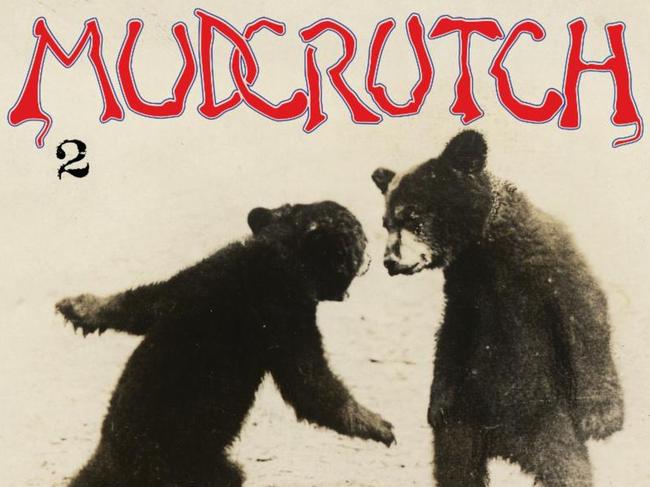
ROCK
2
Mudcrutch
Reprise/Warner
3.5 stars
Following on from his first US No 1 album, 2013’s Hypnotic Eye, Tom Petty rests the Heartbreakers and reunites his first major band, the unfortunately named Mudcrutch, to make their second album. Petty’s principal co-pilots Mike Campbell and Benmont Tench have been with him all the way and are common to both outfits, which means the sound is instantly recognisable as Petty’s music.
Each of Petty’s band mates, including guitarist Tom Leadon and drummer Randall Marsh, contribute one song apiece. All are at least serviceable, especially Tench’s rockabilly drenched Welcome to Hell, but it’s when Petty — on original instrument of bass guitar — is leading that the band is at its best. Apart from when Petty isn’t singing, it is unclear exactly where the Heartbreakers end and Mudcrutch begins.
That the best song on this album is one that Petty once deemed worthy only of B-side status says much about the Floridian and what he has learned during the past 30 years. Trailer truly sparkles among all it surrounds. No doubt Petty was sure there were plenty more where that came from when he pulled it from 1985’s Southern Accents to throw it away as the flip of Don’t Come Around Here No More. You can bet that he now knows the value — and rarity — of a great song and is much more careful with them. If nothing quite matches that opener, with its nostalgic reminiscences of when “we used to dance to Lynyrd Skynyrd”, Dreams of Flying, which is also strongly reminiscent of the Southern Accents era and a couple of ballads, including the heavily Springsteen-influenced I Forgive It All, all hit the mark.
Polly Coufos
*
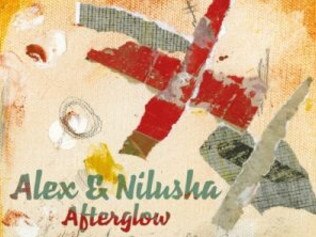
WORLD
Afterglow
Alex & Nilusha
Whispering Tree Music/Planet
4 stars
Acclaimed Melbourne-based world music duo, percussionist Alex Pertout and vocalist Nilusha Dassenaike, launched their third album in front of a studio audience at radio IMER in Mexico City, followed by performances at this year’s Cubadisco Festival in Havana, Cuba, having won a Premio Internacional prize at last year’s festival.
These eight originals — all with Latin rhythms — were recorded in Melbourne, Havana, New York and Buenos Aires with a huge variety of musicians, including outstanding US guitarist Mike Stern, numerous Australians, plus two Cubans: Pancho Amat, master of the Cuban tres guitar, and master-drummer Roman Pelladito on congas and sacred bata drums.
The title track has Pertout playing 15 percussion instruments, from berimbau (a Brazilian single string bow) to diverse bells, gongs, cymbals, shakers, drums, vibes, a glockenspiel and more. In the intro Nilusha provides an ethereal choir of background vocals before embarking on her wistful solo. Paul Grabowsky delivers an appropriate electric piano solo ahead of Nilusha’s concluding stanzas and a chorale with ensemble fade-out. Nilusha’s lyrics are romantic and philosophical, poetical and abstract, as in Early Black Velvety Sky, which features trumpet, violin, and percussion solos plus Amat’s tres. This collection can be categorised as exotic world/jazz in Latin rhythms, with Pertout’s multi-instrumental expertise and Nilusha’s celestial vocals.
John McBeath
*
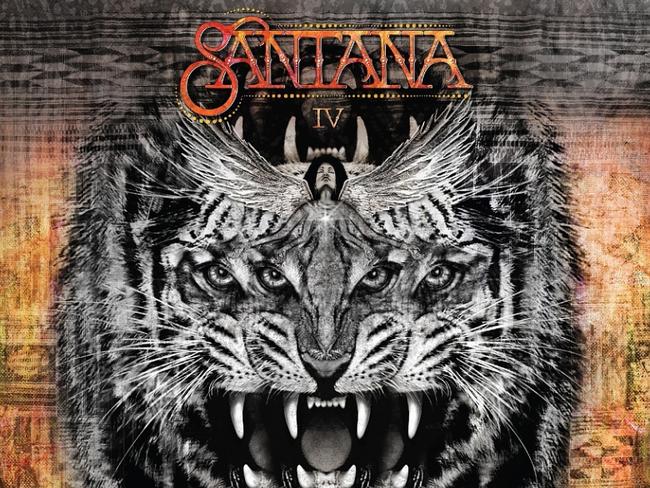
ROCK
Santana IV
Santana
Santana IV Records
3.5 stars
Santana IV? Que? Anyone with a passing knowledge of the Mexican guitarist knows this underestimates the number of Santana albums by 19.
What Carlos has done is get most of the old band back together and count this as their fourth album, conveniently ignoring that guitarist Neal Schon, keyboard player Gregg Rolie and drummer Michael Shrieve all featured on Caravanserai or that Schon did not play on Santana or Abraxas. But what the hell, they were all there with percussionist Michael Carabello for Santana III and it’s obvious as soon as you hear the guitars and Hammond B3 that the boys are back in town. The old chemistry is still there although not the loose exuberance of the early 1970s.
Missing from what has been billed as the “Woodstock-era line-up” is bass player Dave Brown, who died a few years back, but his spot is more than ably filled by current bassist Benny Rietveld. Rolie reprises his role as a skilful foil for the guitarists as Santana and one-time protege Schon trade licks in tracks such as the dynamic Shake It and Anywhere You Want to Go. It is a collaboration of old friends that combines at its high points the sensuous rhythms of the percussionists with sizzling interchanges between the leads.
Not everything is perfect: a nod to one of the great rock venues, Fillmore East, goes on a tad too long and Ronald Isley’s vocals undermine Freedom In Your Mind. But offsetting this are delights such as the interplay in Echizo as well as atmospheric instrumental tracks such as You and I and Suenos. Fans of the original Santana will not be disappointed with this 16-track effort from the band’s classic, and arguably best, line-up.
Steve Creedy
*

POP
case/lang/veirs
case/lang/veirs
Anti-
4 stars
It was KD Lang who initially had the idea of pooling resources with younger singer-songwriters Neko Case and Laura Veirs, and suggested as much in an email a few years ago. The response was positive and immediate. It has taken 2½ years of collaborative songwriting and recording sessions to bring the product to fruition. In the process “egos were slain and conceptions were slain and there were really tense times”, as Lang noted in an interview earlier this year.
When the three distinctive voices blend, as on the opening track, Atomic Number, and I Want to be Here, the cumulative effect is delightful. However, they decided they “didn’t want to make every song a trio song” with three-part harmonies, which was probably a wise move: the consequence is an album that is cohesive yet sufficiently diverse to sustain the listener’s interest down to the last note on Georgia Stars.
Standouts include Lang’s Honey and Smoke and Blue Fires, as well as Case’s tender tribute to Judee Sills, Song for Judee. Case’s vocals also take place of pride on Delirium and Down I-5. On the latter she quotes William Blake, “Some are born to sweet delight, some are born to endless night”, and then adds: “I’ve tasted both, they are the same.”
Veirs shines particularly bright on Greens of June and Best Kept Secret, the latter a nod to the band’s guitarist. Case/lang/veirs may not prove to be quite as commercial as Dolly Parton, Linda Ronstadt and Emmylou Harris’s Trio album nearly three decades ago, but that’s hardly a criticism, and audiences at the forthcoming live US tour, which includes an appearance at the Newport Folk Festival, are most likely in for a rare treat.
Mahir Ali


